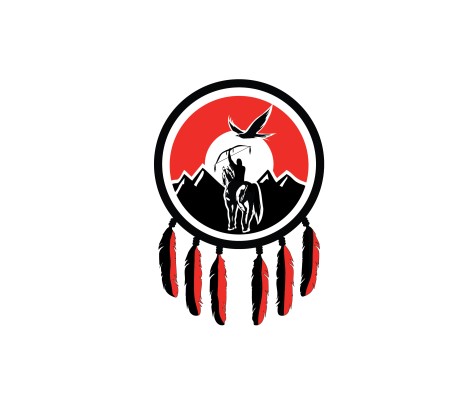As the threat of COVID-19 continues to escalate, a State of Emergency has been declared in all six Tsilhqot’in communities.
The Tsilhqot’in National Government said the State of Emergency will remain in effect until further notice for the communities of Tl’etinqox (Anaham), Tl’esqox (Toosey), Yunesit’in (Stone), Tsideldel (Alexis Creek), Xeni Gwet’in (Nemiah), and ?Esdilagh (Alexandria).
“I think it’s a must,” said Tl’etinqox Chief and TNG tribal chair, Joe Alphonse. “You see this pandemic happening all throughout the world, this isn’t just our area. I think this is the reality, that nightmare that we woke to and we have to take this very seriously.”
Pointing to smallpox that almost decimated their people as well as the Spanish flu pandemic that claimed the lives of many Tsilhqot’in, Alphonse said their history as Indigenous people when dealing with such disease has not been great.
“We don’t want the same thing to happen here,” he said. “Our people are vulnerable, we have a lot of people with diabetes and such things so we have to take this very seriously. Unfortunately one of the only weapons we have is education and hope that people hear our words and adhere to them.”
Access to all Tsilhqot’in communities is now closed to visitors as a precaution to protect elders and members, except for access by caregivers, medical and emergency personnel and essential services. Each community according to a news release may have its own specific restrictions and exemptions that should be confirmed by visitors before accessing the community for any purpose.
“We’re going to be meeting with the RCMP and try to come up with a game plan,” Alphonse said. “We urge people that we don’t have outside visitors coming in. If that continues to be a problem then we’ll put up highway checkpoints but at this point, we don’t have anything like that organized and we’ll continue to monitor that.”
While the Federal Government has announced $305-million announced for Indigenous, Inuit and Metis people across Canada, Alphonse said it is not nearly enough.
“We need medication, we need medical supplies,” Alphonse said. “If our members start getting sick we have nowhere to place them. You have three generations living in a house-it’s very common in our community, we have on average 15 to 20 people living per home so how are you going to deal with this? We need to bring in medical trailers so we can isolate people that get infected and all of that kind of stuff. $305-million might sound like a lot but if you break that down community by community and what the community actually needs to battle this in a healthy, aggressive way it isn’t nearly enough.”
On top of that, Alphonse said some community members are demanding financial support of their own which he says take away the opportunity for buying supplies for Elders who are going to need it.
“It’s a sad reality that we’re in,” he said.
Alphonse added during times like this they would to see liquor stores curtailed.
“My experience in my community and the 2017 fires, that became a huge problem and in stressful times like this you got people buying alcohol and throwing parties,” he said. “One of the biggest issues we have right now, and we’ll be talking with the RCMP today is house parties. There’s a segment within our population that doesn’t’ want to listen, so buying alcohol and having people sharing their drinks with each other that’s a huge concern that we have so we’re asking and calling for the provincial government to shut down liquor sales at the Alexis Creek location and I think we have to really keep pushing for that.”
With EMBC (Emergency Management BC) and INAC (Indigenous and Northern Affairs Canada) managing emergency funds for First Nations, Alphonse went on to warn First Nation communities to be cautious. He said they are being vague with their guidelines and policies, and not providing full details.
“They’ll have their policies down right after this crisis is over but they sure as hell aren’t sharing it right now, and they did that with my community in the 2017 fires. They still owe my community $721,000 from 2017 on things that they promised they were going to reimburse us on,” Alphonse said.
“As of right now EMBC and INAC continue to make promises that they have no intention of keeping.”
To date, the Tsilhqot’in Nation has had no confirmed cases of COVID-19 in any of the six communities.
(Note: Listen to the author of this report with Tl’etinqox Chief and TNG tribal chair, Joe Alphonse in the audio file below)
Something going on in the Cariboo you think people should know about?
Send us a news tip by emailing [email protected].








